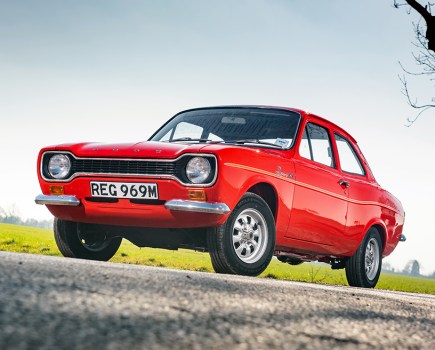The Irish Climate Change Act is poised to take older vehicles off the road in 2045. Here’s what you need to know.
The draft law that that will underpin the Irish government’s Climate Action Plan has been published, and it’s not looking like good news for owners of older vehicles. Under the plans, the sale of new fossil fuel cars will be banned in the Republic of Ireland by 2030. Of greater consequence, however, is that that also aims to stop the granting of a National Car Test (NCT) to cars powered by fossil fuels from 2045 – a move that would see it effectively banish some existing petrol and diesel cars from the road, rather than just stopping the sale of new ones.
The Minister for Communications, Climate Action and Environment Richard Bruton published the Draft General Scheme of the Climate Action (Amendment) Bill 2019 on January 6, and confirmed that it is priority legislation for the new parliamentary term. The new bill aims to enshrine in law the approach outlined in the Climate Action Plan, which was published last June and maps out how Ireland will radically reduce emissions to ensure future climate commitments are met. Unlike other climate plans in the past, legislation will underpin many of the targets to ensure the government of the day is accountable.
By announcing its plans to not issue NCTs to fossil fuels cars after 2045, Ireland becomes the first country we know of to reveal a potential method of taking such cars off the road. The NCT is the Irish equivalent of the UK’s MoT test, and was introduced in 2000 as part of an EU Directive that makes car testing compulsory in all member states. It is an offence to drive a car without displaying a National Car Testing Service disc, if the car is liable for testing.
The NCT is conducted every two years on cars over four years old and every year on cars over 10 years, but less than 30. The test is then conducted every two years if the car is between 30 and 39 years old and is not being used for commercial purposes. From this month, vehicles over 40 years old do not need to be tested unless being used commercially, such as for wedding hire.
Should the Bill pass and the rules stay as they are, post-2005 cars will be banned from Irish roads. Some post-2005 cars are already on the fringes of being considered as modern classics, and this will no doubt proliferate in future. In addition, historic cars over 40 years old and used for commercial use could be banned. What it means for the likes of vintage buses and old lorries over 40 years old is unclear. As with cars, these currently have to undergo the NCT if used commercially.
Richard Bruton is confident drivers will make the switch to electric vehicles, suggesting the tipping point in their favour would be around 2024 when long-term running costs were factored in with purchase price. But while the necessity to reduce emissions is widely and rightfully recognised and appreciated, critics have questioned the methodology and the likelihood of the necessary infrastructure for EVs being rolled out in time, especially in rural areas. Brian Cooke, Director General of the Society of the Irish Motor Industry, believes that 2030 is too early to end sales of new fossil fuel cars. “In the past, we’ve set targets and deadlines without having a plan,” he said. “This is putting the cart before the horse.”
Ireland is not alone in its 2030 target. Many other European countries plan to ban the sale of fossil fuels cars by 2030, including Netherlands, Sweden and Denmark. Scotland is aiming for 2032, with Norway setting an ambitious target of 2025 – a mere five years away. And while the NCT deadline of 2045 seems an awfully long way off, so did 2020 back in 1995, and many or our readers will still own the same car now as they did back then…
Should Ireland’s plans come to fruition, pre-2005 cars could feasibly become hot property and be preserved greater numbers. Of course, a whole lot could change over the coming years as technology advances and the goalposts inevitably move, but in light of other countries’ measures, the UK could well come under increased pressure to bring its current 2040 deadline on the ban of new fossil-fuelled cars and vans forward. What happens to such cars already registered remains to be seen.






